Embrace Spontaneity with Crawls Glazes
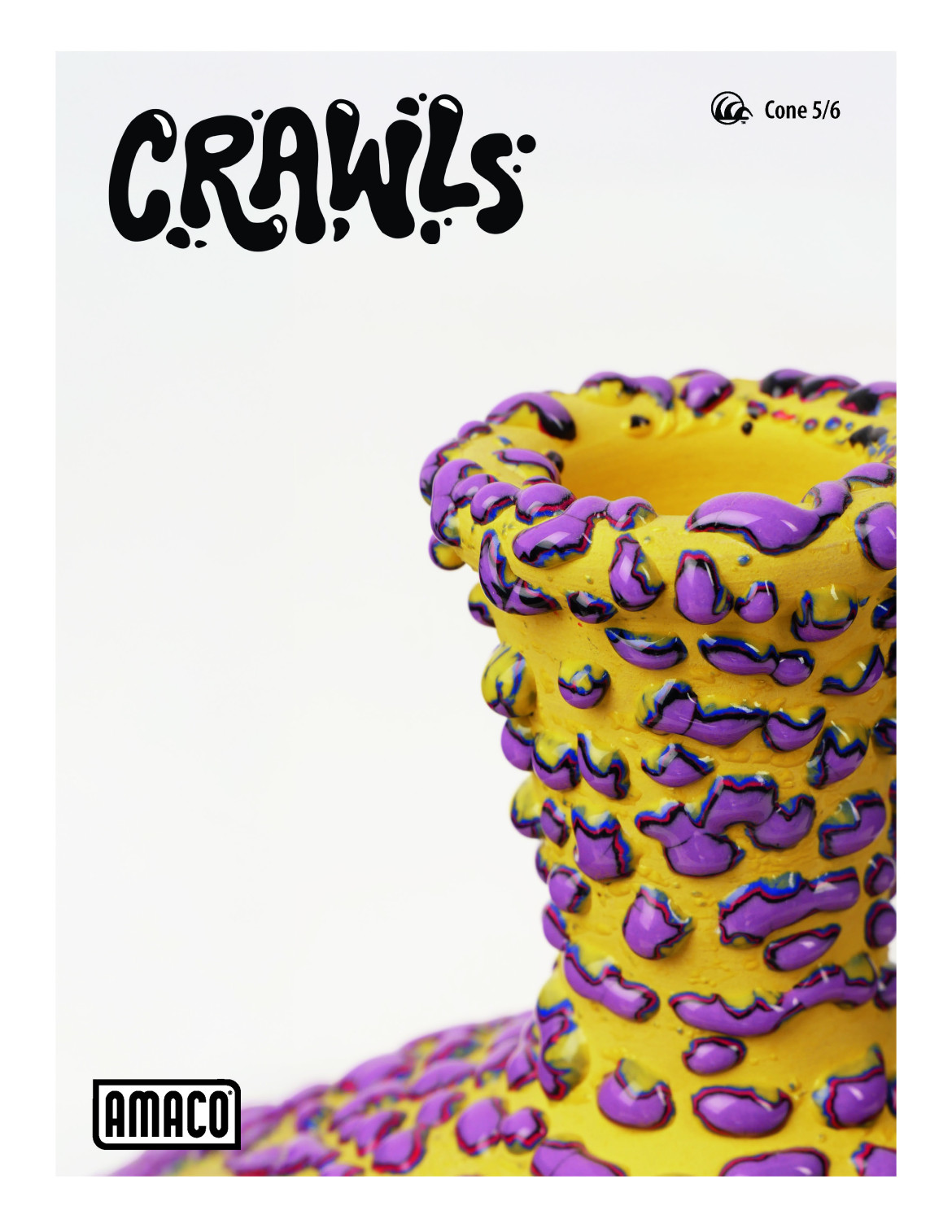
In the clay world crawling is the word for when glaze moves away from the clay during firing, or “crawls”, leaving bare clay and clumped glaze. It’s usually considered a flaw, but when created intentionally, crawl or bead glazes can be a dramatic and fun way to liven up your pieces.
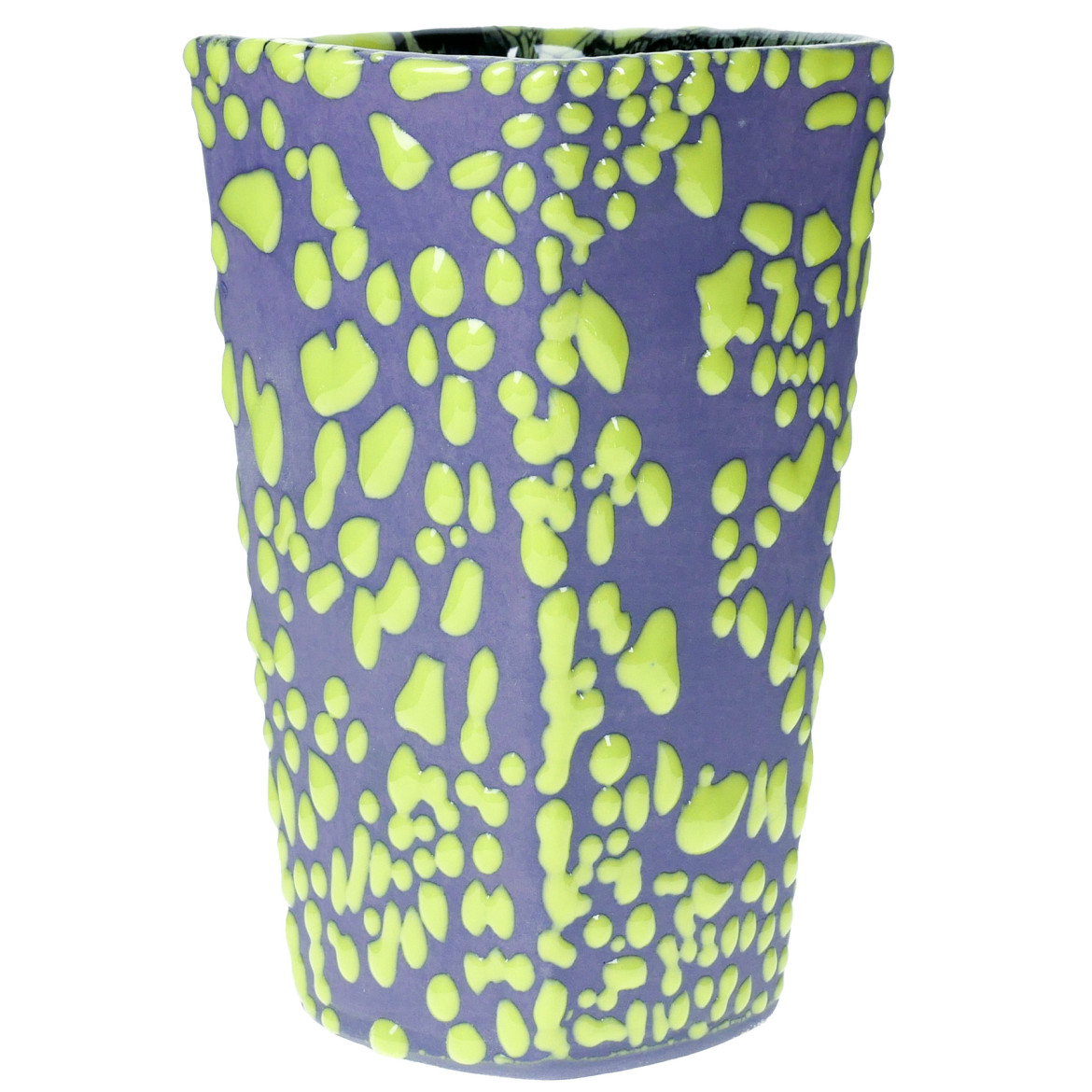
C-41 Lime over V-381 Amethyst
AMACO's new cone 5 Crawl glazes create a classic crawl effect over bare clay and AMACO Velvets, as you’d expect, and a unique surface pattern when layered over glazes like AMACO Celadons.
The Rainbow Crawls are:
CR-1 Black
CR-12 Speckled White
CR-20 Dark Blue
CR-22 Teal
CR-41 Lime
CR-51 Speckled Pink
CR-54 Purple
CR-58 Red
CR-61 Speckled Yellow
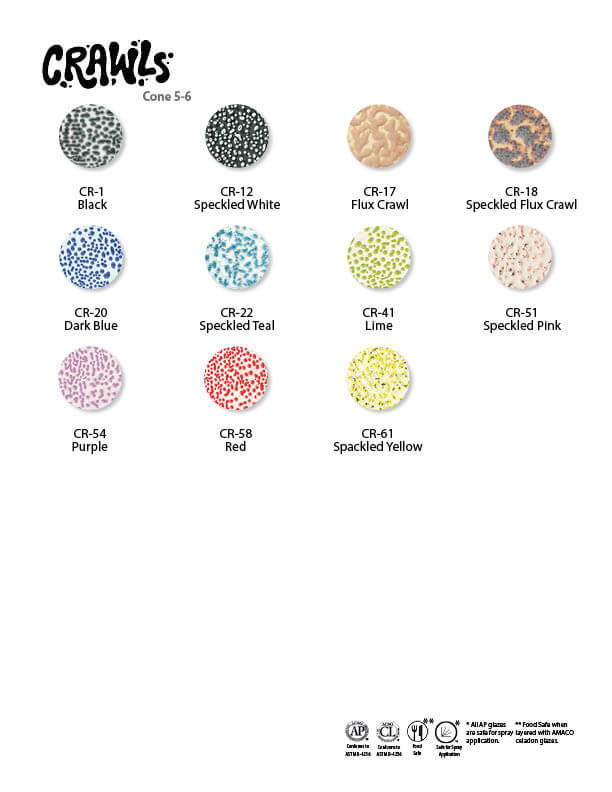
Over bare clay or Velvet underglazes, AMACO Crawl glazes develop a distinct, bead-like texture when fired. You’ll get larger and more widely spaced beads with a heavy application and closely spaced tiny beads with a thinner application. Some colors also contain specks for added variation.
The rainbow-colored Crawls can be intermixed to create custom colors. Or layer the Crawls colors for an Agate or Fordite effect with the added benefit of color stability.
Do you want something different? Try layering for a different effect with your regular glazes. I’m especially in love with the effects of layering Crawls over Celadons! All of the Crawls look great with Celadon glazes like C-1 Obsidian.
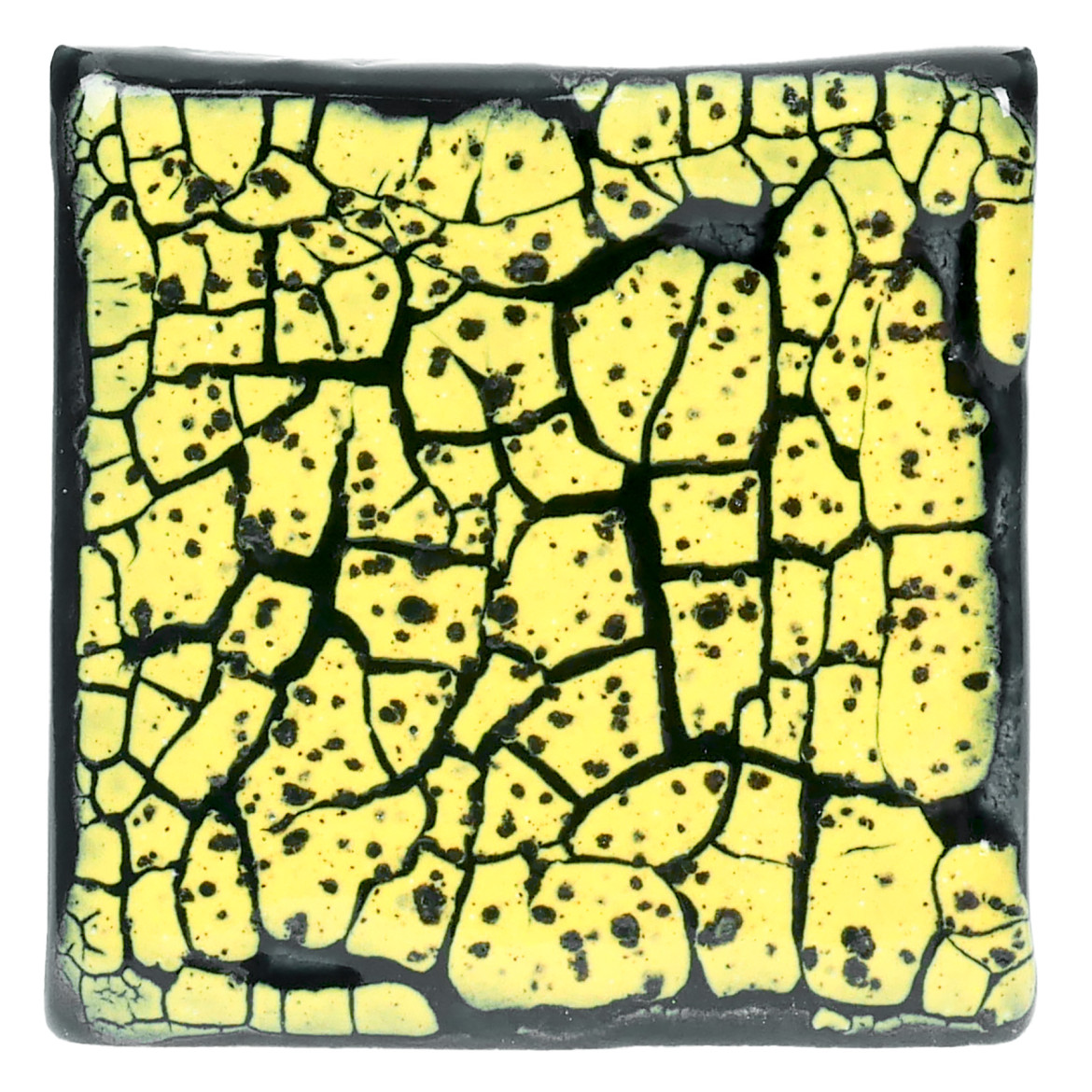
CR-61 Speckled Yellow over C-1 Obsidian
There are some wild results from layering over other glazes, like Potters Choice, Satin Mattes, PC Fluxes, and Phase glazes.
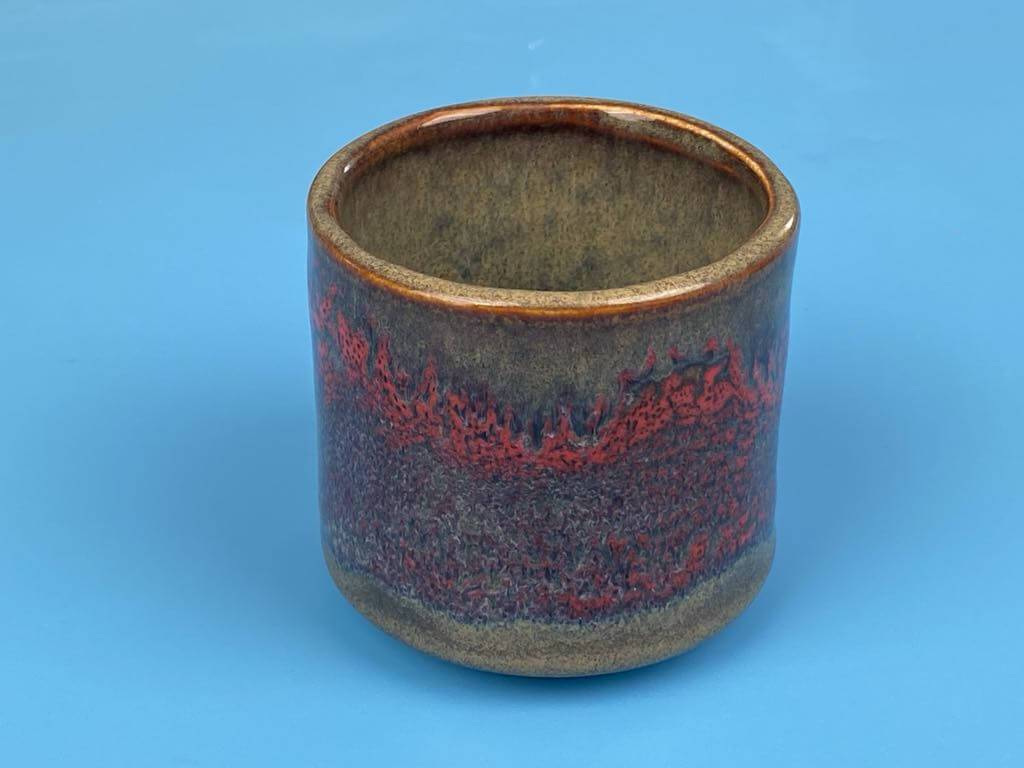
CR-58 Red over PC-33 Iron Lustre
When used over a Celadon glaze, all Crawls glazes are food safe. When used over bare clay or a Velvet underglaze, they are food-safe but not suitable for food since they can’t be adequately cleaned. We do not test the Crawls layered over glazes other than the Celadons.
In addition to the nine Rainbow Crawls we also have:
CR-17 FLUX Crawl
CR-18 Speckled FLUX Crawl
The Flux Crawls are based on our popular Potter’s Choice Flux glazes, but with a crawl effect to make a mottled, fluid appearance when layered over other glazes.
With Flux Crawls you can create a Frozen Pond effect without making dots, just apply over a Celadon glaze. The Flux crawls will create a frosty mottled pattern over the Celadon.
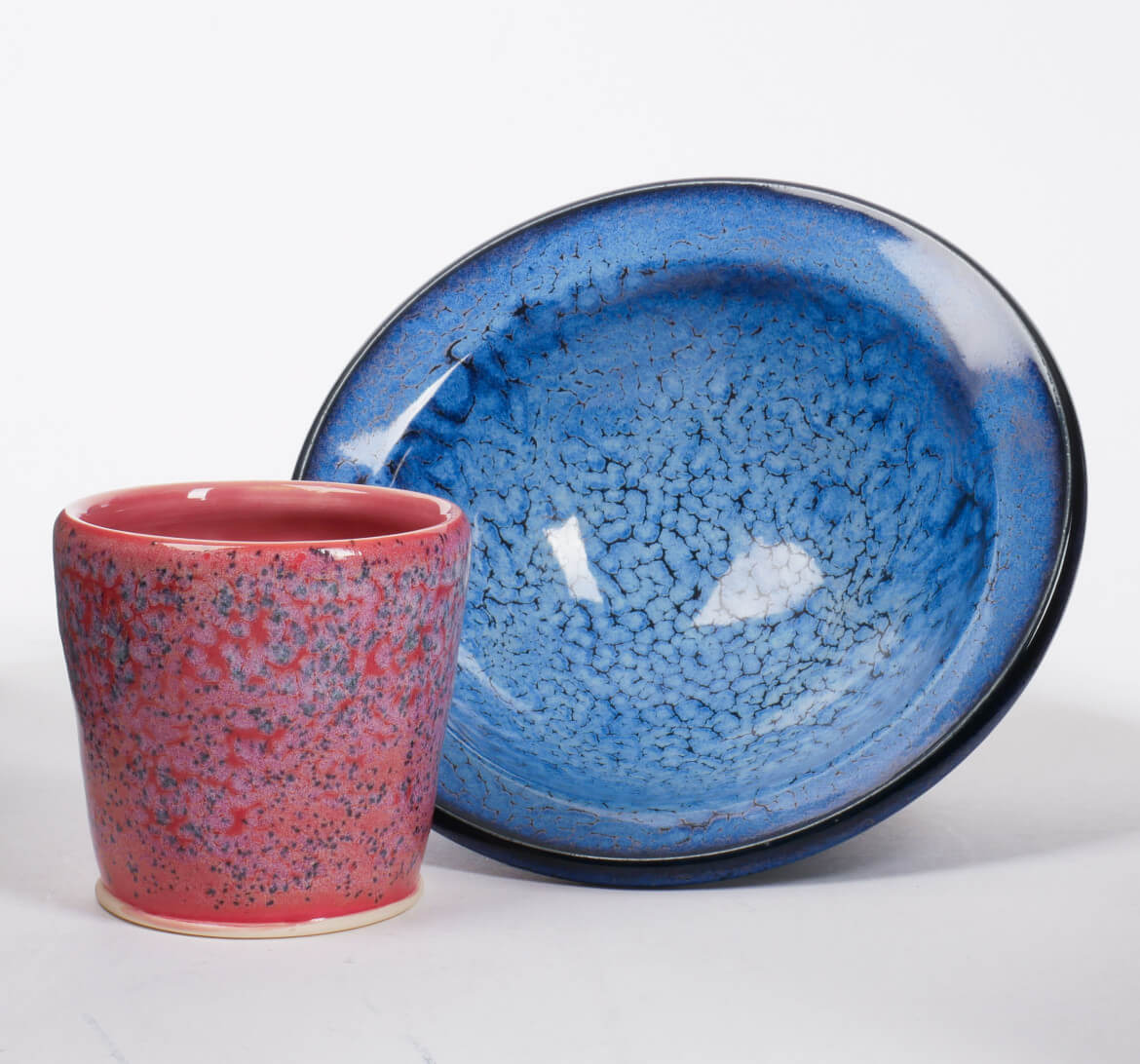
I love the variety of effects the Crawls can create, from a scaley surface to a beaded surface. I love the bright colors, too, and the way I can use them in different ways.
When applying the crawls, be aware that they will crack as they dry. Not to worry, this is normal. I find the best way is to apply each coat as soon as the last coat is dry to the touch, not to let each coat dry for too long. Too heavy an application can come loose before firing. Apply Gum Solution to the ware before applying the Crawls to help them adhere, or just lightly mist with water or brush on wax to help keep the glaze in place until firing.
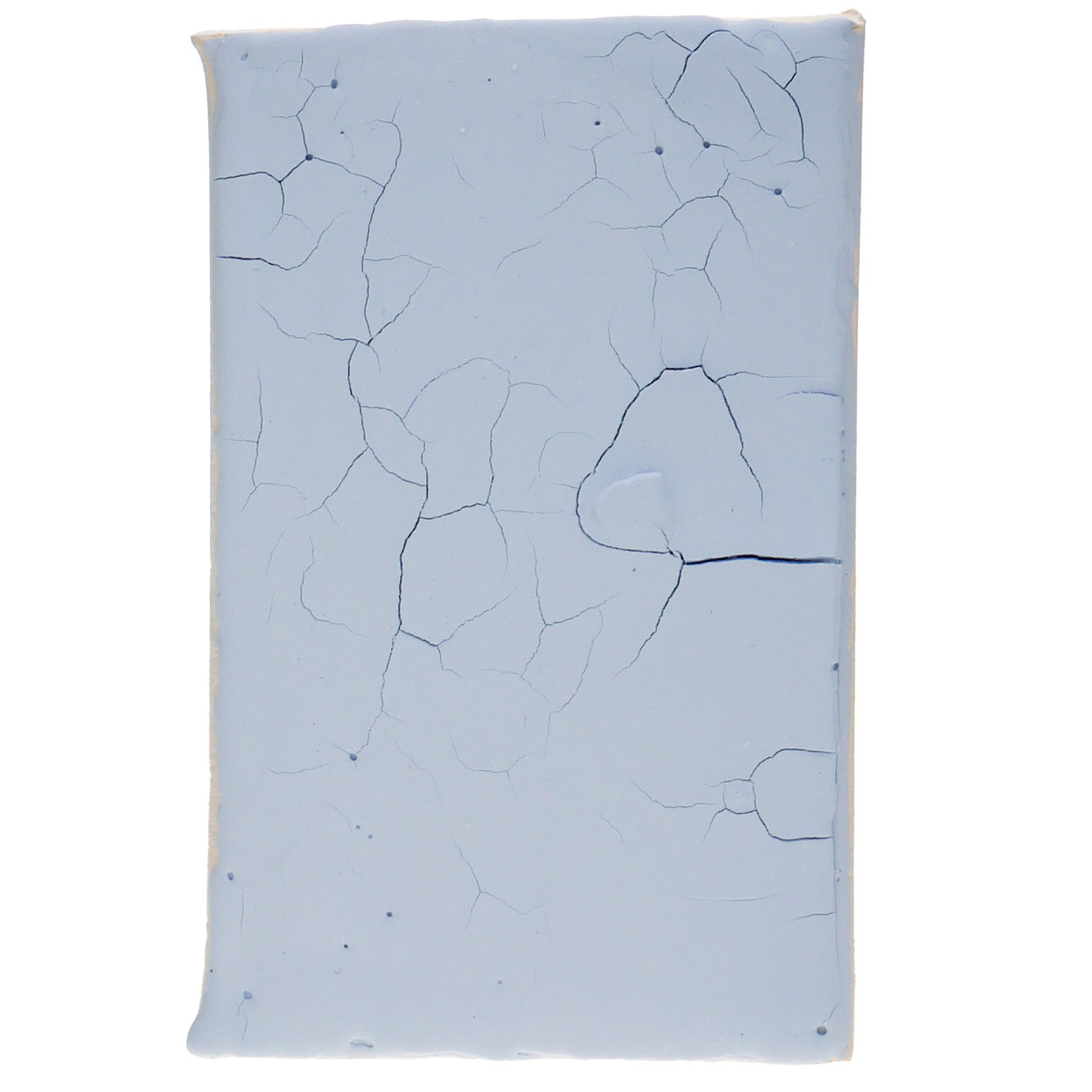
3 coats of Crawls glaze, dry, showing the cracking that is normal before firing.
What makes Amaco Crawls different from other crawl or bead glazes?
Amaco crawls are different from other crawl or bead glazes in that they are specifically meant to work with Amaco glazes, like the Celadons, as well as creating a bead effect when used alone or on Velvet underglaze.
Can you apply Celadon OVER the Crawls?
We haven’t tested that, but as the Crawls will create the cracking pattern under the Celadon glaze, you’d have the beaded texture. What I have tried is applying a Celadon over a fired Crawl glaze, (as well as a Satin Matt and a Potter’s Choice Flux glaze), and the results were interesting! The Crawls stayed in place under the glaze, giving a nubbly texture like scales or welts. Shown below is C-10 Snow applied over a previously fired CR-1 Black Crawl and refired to cone 5.
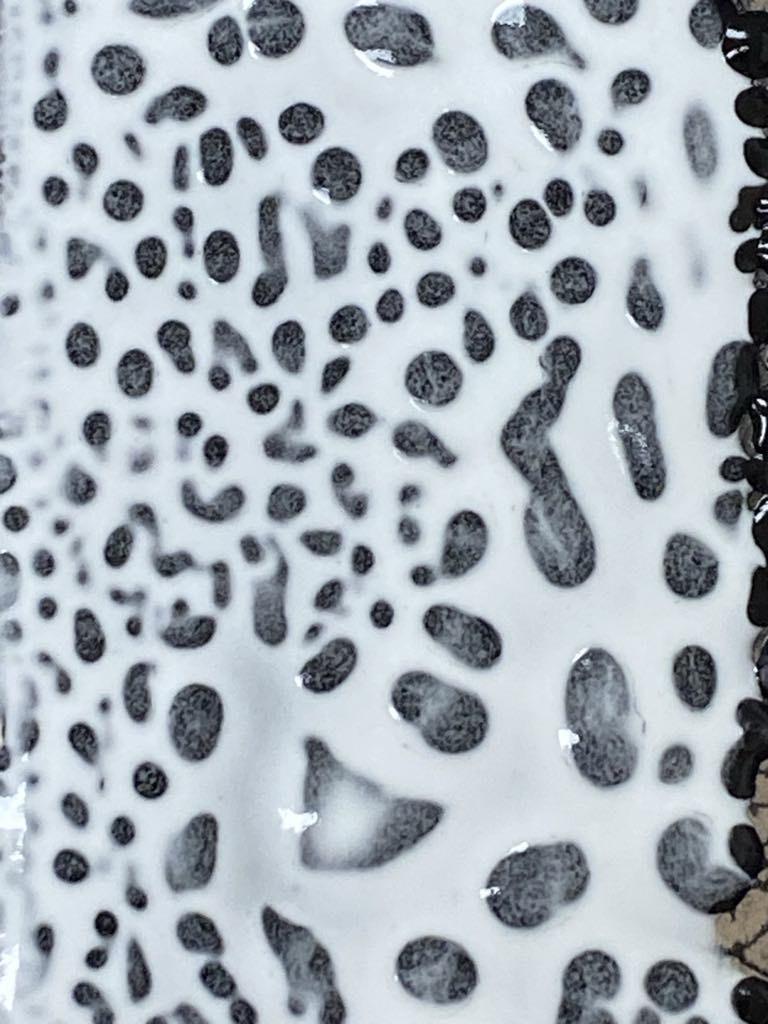
How well do they fire at cone 6?
There are no noticeable differences when fired to cone 6 but be wary when firing with the Crawls over Celadons. Some Celadons lose color when fired at cone 6.
Do the Crawls beads fall off after firing?
We have not had any problems with the Crawls falling off after firing.
Can you control the direction of how the beads form?
The beads that form with the Crawls tend to form in the direction they were brushed on.
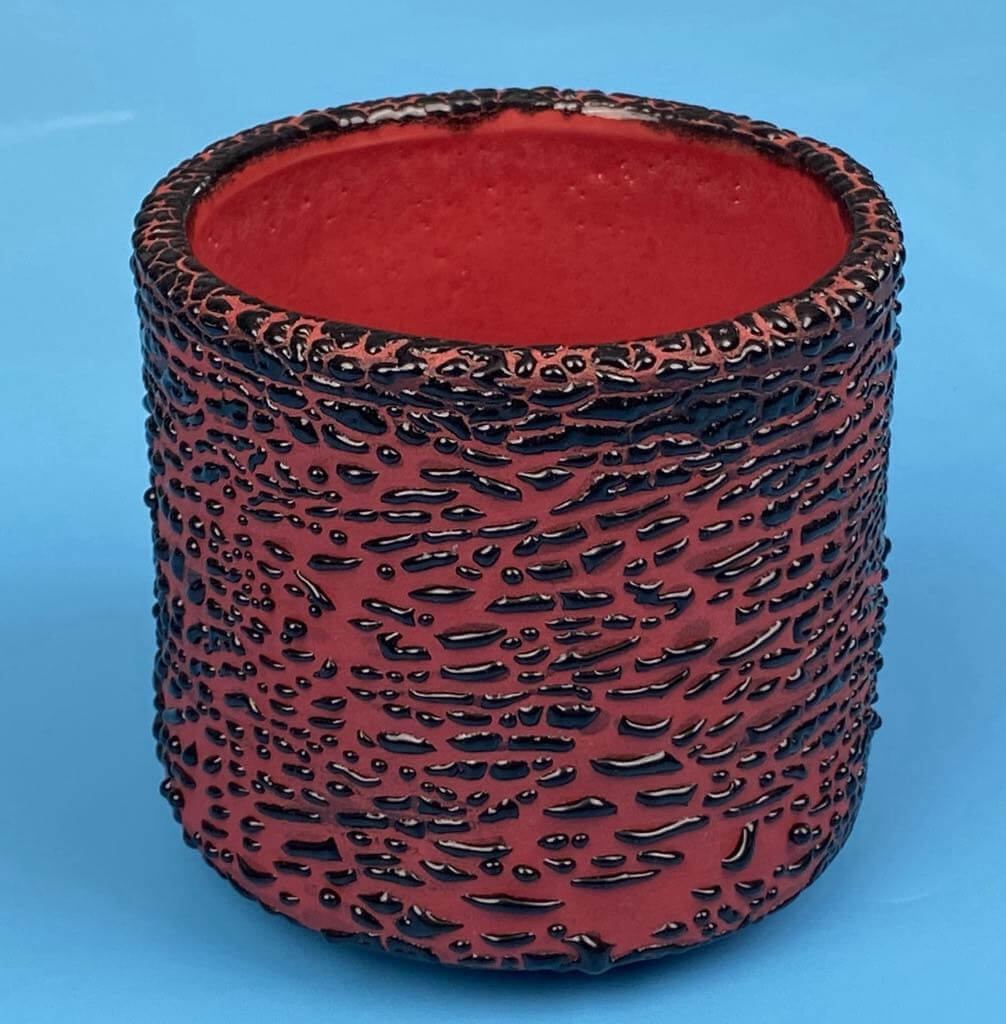
CR-1 Black over V-388 Radiant Red. You can see the Crawl Black was applied in a horizontal direction, creating horizontal beads.
Crawls will be available this summer at a distributor near you.
I think you’ll have as much fun with them as I have, try them out!
Use #HowIAmaco or #Amacocrawls to share your explorations with us!
Thank you for joining me on my glaze adventures, Happy glazing!
